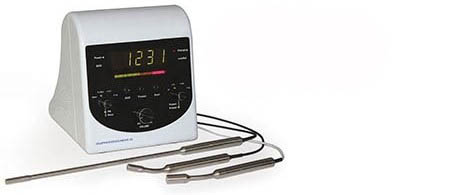Program Description:
This discipline is an integration of Engineering, Basic Sciences, Medicine and Biology. It attempts to bridge toward modern technology while studying the principles and functions of living systems and applying biological and physiological data on the human body. Biomedical Engineering plays a significant role in different areas such as Biomedical Instrumentation, Modeling and Controlling Biologic Systems, Processing of Biologic Signals and Medical Images, Robotics in Medical Design, Neural Networks, Modeling of the Structure and Human Brain Functions, Rehabilitation Engineering and Artificial Organs.
This discipline plays a significant role in different areas such as Biomedical Instrumentation, Modeling and Control of Biologic Systems, Processing of Biologic Signals and Medical Images, Robotics in Medical Design, Neural Networks, Modeling of the Human Brain Structure and Functions, Rehabilitation Engineering and Artificial Organs.
The graduates are enabled to develop new methods and techniques for the design and production of diagnostic and therapeutic devices to promote health systems according to scientific principles.
Objectives:
The main objective of this discipline is to educate and train bioelectrical engineering specialists as a member of clinical research and education centers or hospital sand to enable them to evaluate, select and observe the implementation of the following for clinical research and optimal application of medical equipment in clinical diagnosis and therapy:
- Evaluation, selection and application of new technological systems
- Management of preventive maintenance and repair of medical equipments
- Applied education of medical staff in clinics and hospitals Administration of technical hospital information system and collaborating with physicians, technicians and nurses
- Standardization of applied medical engineering systems
- Advancing the qualitative and quantitative aspects of patients diagnosis and therapy
- Provision of related expert and consulting services for the medical staff in hospitals and health centers
- performing advanced research in medical and engineering fields in order to develop new methods and techniques for design and production of medical diagnostic and therapeutic devices
Specific Competencies and Skills
At the end of the program learners will be competent in the following skills:
- Managing and conducting biomedical engineering offices in hospitals and health centers -Managing and performing theoretical and applied research in general biomedical and, specifically, in bioelectrical engineering fields
- Designing and developing new techniques, methods and devices in special areas of biomedical engineering technology
- Teaching basic and new biomedical engineering technologies to medical, and biomedical engineering and students of basic sciences in engineering and medical schools and also the medical staff in hospitals
Duration:
Three or four years full-time at two levels of education and research.
Program Description:
The discipline of Biomedical Engineering (Bioelectric) is an integration of Engineering, Basic Sciences, Medicine and Biology, which bridges toward modern technology through the study of the principles and performance of living systems, and the application of Biological and Physiological data to the human body.
This discipline plays a significant role in different areas such as Biomedical Instrumentation, Modeling and Control of Biologic Systems, Processing of Biologic Signals and Medical Images, Robotics in Medical Design, Neural Networks, Modeling of the Human Brain Structure and Functions, Rehabilitation Engineering and Artificial Organs.
The graduates are enabled to develop new methods and techniques for the design and production of diagnostic and therapeutic devices to promote health systems according to scientific principles.
Objectives:
The main objective is to educate and train Bioelectrical Engineering specialists as members of clinical research and education centers or hospitals to be able to evaluate, select and observe the implementation of clinical research and premium application of medical devices in clinical diagnosis and therapy such as:
- Performing basic and applied research to get advantage of basic and engineering sciences to improve the quality of community health
- Training the experienced specialists in bioelectrical engineering fields
- Training the specialized lecturers and researchers to teach, perform research and progress the research levels in bioelectrical engineering field in universities and allied research centers
- Training the required specialized personnel for the application of new advanced techniques in biomedical engineering to improve the quality of community health
- Advancing the qualitative and quantitative aspects of diagnostic and therapeutic systems by the invention or standardization of medical devices
- Advising and helping the administrators of the hospital and health centers in the acquisition of new medical devices, and education of medical staff
Specific Competencies and Skills
At the end of the program learners will be competent in the following skills: Graduates would have the precise and up- to- date knowledge of almost all diagnostic and therapeutic bioelectrical devices for:
- Teaching theoretical and applied courses to medical and biomedical engineering students and hospital staff
- Supervising biomedical engineering department in a hospital and cooperating with hospital management on the following issues:
- Purchasing and installing new medical devices
- Performing periodic safety checks
- Maintaining and repairing medical devices
- Conducting research in biomedical engineering science and technology
Duration:
2 - 2.5 years full-time at two levels of education and research.

